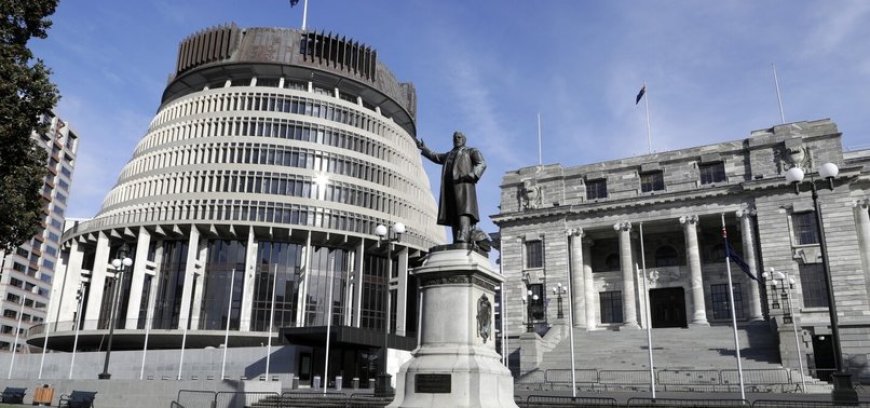U.S. Opens FBI Office in New Zealand to Counter China’s Rising Influence in the Pacific
The FBI has opened its first standalone office in Wellington to bolster cooperation with New Zealand against cybercrime and Chinese influence. The move draws mixed reactions and strategic implications for the region.

In a strategic move with geopolitical implications, the Federal Bureau of Investigation (FBI) has established its first standalone office in Wellington, New Zealand, aimed at enhancing collaboration on issues ranging from cybercrime to regional intelligence cooperation. The action marks a shift from a sub-office in Canberra, now elevating New Zealand’s role within the Five Eyes alliance and sparking diplomatic repercussions, particularly from Beijing.
A Bold Security Expansion in the Pacific
Beginning operations on July 31, 2025, the new FBI office provides law enforcement attaché services across New Zealand, Antarctica, and key Pacific island nations including Samoa, Niue, Cook Islands, and Tonga. FBI Director Kash Patel emphasized that the establishment is part of a broader mission to:
-
Counter Chinese Communist Party influence in the Indo-Pacific region
-
Enhance cooperation on cyber intrusions, ransomware operations, and narcotics trafficking
-
Strengthen joint investigations into transnational crimes like child exploitation and organized crimeYahoo+14The Guardian+14euronews+14Federal Bureau of Investigation+5Reuters+5AP News+5
Officials in Wellington reaffirmed the partnership’s priority on public safety, while quietly distancing themselves from Patel’s direct references to ChinaAP News.
Diplomacy Under Strain: Beijing Pushback
Patel’s remarks identifying China as a challenge triggered sharp responses:
-
Chinese Foreign Ministry called the move a sign of “Cold War mentality” and criticized Washington for targeting Beijing indirectlyAP News.
-
Chinese officials demanded that security cooperation should not be framed as anti-China campaigns, arguing it compromises regional stability.
Meanwhile, New Zealand’s leadership—including Foreign Minister Winston Peters and Security Services Minister Judith Collins—publicly emphasized that the FBI office is focused on crime-fighting, not geopolitical posturingyoutube.com+151News+15euronews+15.
Five Eyes and Strategic Significance
The FBI's new presence fills a gap in the network of the Five Eyes intelligence alliance, comprising the U.S., UK, Australia, Canada, and New Zealandyoutube.com+10Wikipedia+10Reuters+10. Wellington’s upgrade underscores New Zealand’s elevated status in regional intelligence-sharing mechanisms and signals Washington’s interest in ensuring cohesive coverage across the South Pacific.
Australian officials, including Home Affairs Minister Tony Burke, welcomed the development as strengthening shared security capabilities, though the discrete diplomacy surrounding the visit stirred political commentary at homeeuronews.
Why the Expansion Matters
1. Greater Regional Coverage and Operational Capacity
The office streamlines operations previously managed from Canberra, enabling real-time coordination with New Zealand’s law enforcement agencies and accelerating responses to fast-evolving threats such as cyberattacks or drug trafficking.
2. Strategic Messaging in the Indo-Pacific
While explicit language branding China as a threat drew backlash, the very expansion signals Washington’s intention to project influence more deeply in a region where Beijing’s presence has grown—through infrastructure projects and diplomatic outreach with Pacific island statesWikipediaAl Jazeera.
3. Strengthened Legal and Criminal Justice Collaboration
Both nations align on issues like organized crime, child exploitation, and financial fraud. The new office aims to enable joint investigations, shared databases, and mutual legal assistance agreements engineered for more efficient prosecution and preventive measuresFederal Bureau of Investigation.
4. Diplomatic Tightrope for New Zealand
The nation faces a delicate balancing act: it remains one of China’s vital trade partners while deepening security alignment with the U.S. Its leadership has sought to frame the cooperation as issue-specific and non-directive regarding ChinaWikipedia1News.
Public Reaction and Civil Discourse
The announcement led to significant online criticism and plans for public protests in Wellington. Many objections were rooted more in domestic unease about U.S. politics than ideological disagreement over law enforcement partnershipsAP News.
Political observers highlight the tension between New Zealanders' support for international policing initiatives and their aversion to overtly antagonistic rhetoric toward China.
What's Next: Surveillance, Cooperation, and Policy Change
In the coming weeks and months, key developments to watch include:
-
Formalization of cooperation protocols with New Zealand’s police, NZSIS, and defense agencies
-
Expansion of FBI operations across Pacific island states to address vulnerabilities such as trafficking or cyber exploitation
-
Public debate and diplomatic responses, particularly if cooperation becomes framed explicitly as counter-China initiative
-
Potential impacts on broader alliances like AUKUS, where New Zealand has been cautious about deeper alignmentThe Guardian
Global Implications and Strategic Framing
This marks a pivotal moment in U.S. and New Zealand strategy across the Pacific:
-
For Washington, the move underscores an intensified Indo-Pacific posture aligned with its broader geopolitical approach under the Five Eyes group.
-
For Beijing, it raises concerns about containment and surveillance in a region it has sought to engage via diplomacy and infrastructure deals.
-
For Pacific island nations, it represents both an opportunity for enhanced security assistance and a potential shift toward alignment in rising geopolitical competition.
Conclusion
The opening of the FBI’s Wellington office signals a more coordinated security architecture in the South Pacific—anchored in transnational crime prevention, cyber-intelligence-sharing, and strategic counterbalance to regional influence. While framed on national security grounds, the development also underscores international tensions, as New Zealand navigates its roles within both Five Eyes and its critical bilateral relationship with China.
The coming weeks will test whether this expansion becomes a model for multilateral cooperation—or accelerates regional divisions intertwined with global power shifts.




















































